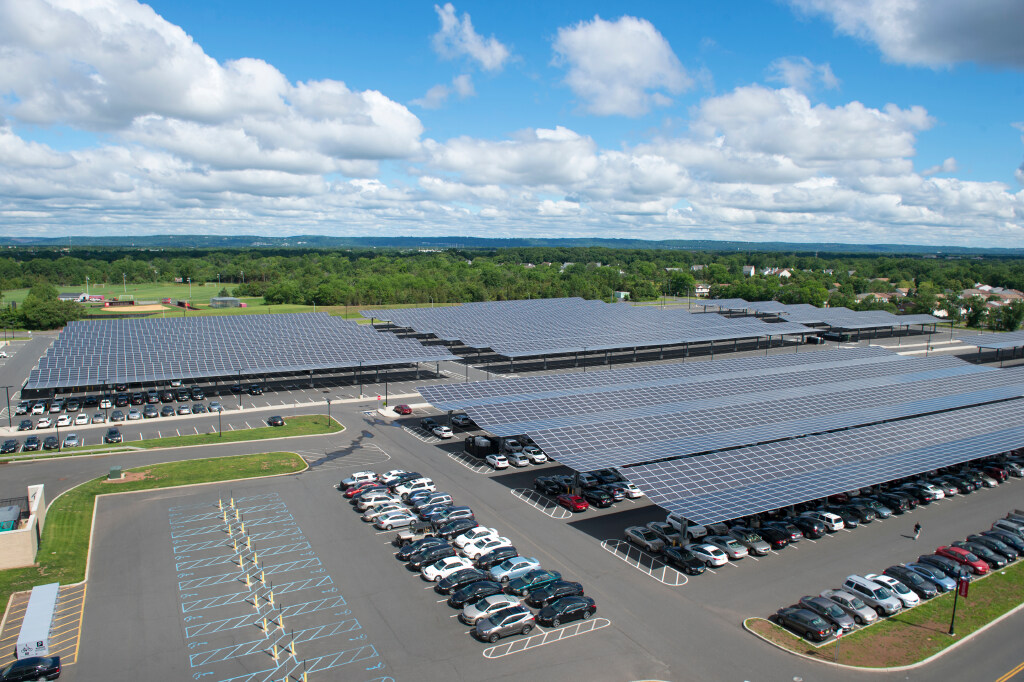The President’s Task Force on Carbon Neutrality and Climate Resilience held a public town hall on Feb. 12 at the Student Center on Cook campus. The event focused on how carbon emissions can be reduced at Rutgers in order to achieve carbon neutrality.
An hour long presentation and plenary discussion preceded a general body discussion. The discussion was held in small groups where attendees had the opportunity to share ideas directly with a member of the Task Force.
The presentation was given by Robert Kopp, professor from the Department of Earth and Planetary Sciences and director of the Institute of Earth, Ocean and Atmospheric Sciences.

“We have already had actions to reduce our emissions, even in the absence of a strategic plan for doing so. We have (approximately) 10 megawatts of on-campus solar power capacity (and) new buildings on campus are built to either lead silver or gold standards. Our 2015 master plans highlight sustainability as a key objective,” Kopp said. “We are actively working with the (New Jersey) Department of Transportation in Middlesex County for bike paths and bike lanes.”
Kopp said Rutgers will attempt to reduce its carbon emissions in the next 18 months, in his presentation. He said this is an ambitious goal when contrasted to other Universities who take at least two years to achieve the same goals that the Rutgers Task Force has set out to accomplish.
Kopp presented the results of the case study of greenhouse gas emissions at Rutgers University—New Brunswick during the fiscal year of 2019. He said heat was responsible for generating approximately 50 percent of emissions, followed by grid electricity at 23 percent, on-campus electricity at approximately 13 percent and the remainder was related to commuting. Approximately two percent of emissions came from buses, which Kopp said is a negligible amount.
The problem areas were broken down into scopes, Kopp said. Scope one composes of on-campus electricity, heat and transportation. Scope two consists solely of grid electricity. Scope three includes indirect travel emissions as well as supply chain emissions.
The plan consists of tackling mostly the issues within Scope one and Scope two.
“Roughly, Rutgers New Brunswick is directly responsible, Scope one and two, for 210,000 tons of carbon dioxide emissions. That is roughly 1/500 of all the emissions in New Jersey,” Kopp said.
Kopp held a plenary discussion after his presentation for attendees to provide feedback or ask any questions about the event.
Einar Magnusson, a School of Engineering senior, spoke at the plenary discussion and said some students may not be aware of the environmental implications of the heating systems in residence halls.
“(Students) pay a flat rate for housing and heating and so what happens is that you’ll hear a lot of students say ‘well, I already paid for heating so I might as well use it to its fullest extent.’ So, they just leave the climate (heating) control system on 24/7 and there is no incentive for people to be more climate conscious in the way they are using energy in their apartment,” Magnusson said.
Magnusson suggested the University develop some form of incentive for students to be more energy efficient, despite how difficult that solution may be.
Other attendees reflected on the town hall and what the University’s next steps will be.
Matt Smith, the state director for New Jersey Food and Water Action, attended the event. Prior to it beginning, he said the Central Jersey Climate Coalition, his organization and other campus and community groups helped pressure the University into taking action by holding a climate strike in September 2019.
“We had (more than) 800 Rutgers students, faculty and community members in a demonstration on campus calling on the administration to take stronger actions on climate, including divesting its endowment from fossil fuel. Within a matter of weeks after holding that big protest … (University President Robert L. Barchi) actually announced that he would be creating a task force to work on a carbon neutral plan for Rutgers,” Smith said.
David Hughes, professor from the Department of Anthropology and treasurer of the Rutgers American Association of University Professors and American Federation of Teachers, said many students and faculty understand the importance of carbon neutrality and was pleased with the discussion at the event.
“I think that people need to stay engaged and people need to be prepared to mobilize as we did during the climate strike in September,” Hughes said. “People need to be vigilant because I am not sure that Barchi, let alone (University President-elect Jonathan) Holloway, will want to spend the money fast enough to go zero carbon fast enough. So, I am watching this thing to see how much ambition students and faculty will force upon this administration.”
Hughes said the University and New Brunswick as a whole can help people make more environmentally-conscious decisions. He suggested expanding bike lanes throughout the city, especially between the College Avenue campus and Douglass campus. He also said the University can provide reusable dishes and silverware at events rather than disposables.
Amy Scheidecker, a School of Environmental and Biological Sciences sophomore, said the event was well organized but the discussions could be improved.
“They definitely knew exactly what they wanted to get out of the event. I think for the most part, they were willing to listen which is really important, but I do think that not everybody was (listened to),” Scheidecker said. “I definitely felt like some people who were running the tables were more aimed at educating us on what already exists and what they are already doing, rather than listening to us and planning based on our input.”
Rachel Broder, a School of Environmental and Biological Sciences sophomore, said the rest of New Brunswick should be involved in the University’s climate initiatives as well.
“I really appreciate that they are doing this and that they are trying to get the students involved, but I also think that there should have been more of an effort to get more of the broader New Brunswick community (to appear at the town hall),” Broder said. “I am curious about how much (of our input) they are going to take and if this is all publicity and that they are saying they are getting our input or if it’s actually going to manifest into the climate action plan.”
This article was originally published by The Daily Targum.












